Retiring Safe Nest executive director reflects on 38 years tackling domestic violence in Las Vegas
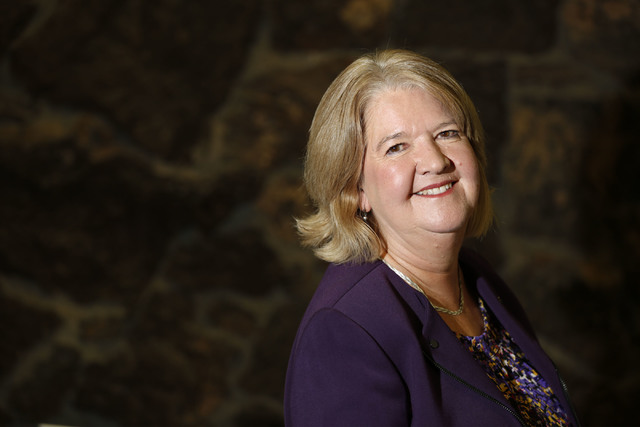
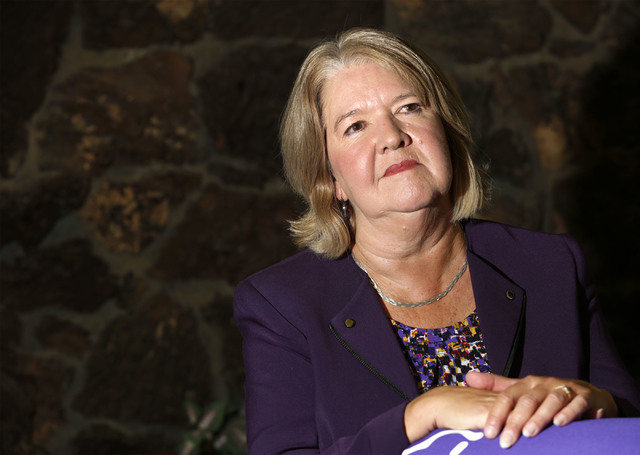
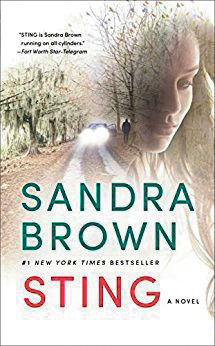
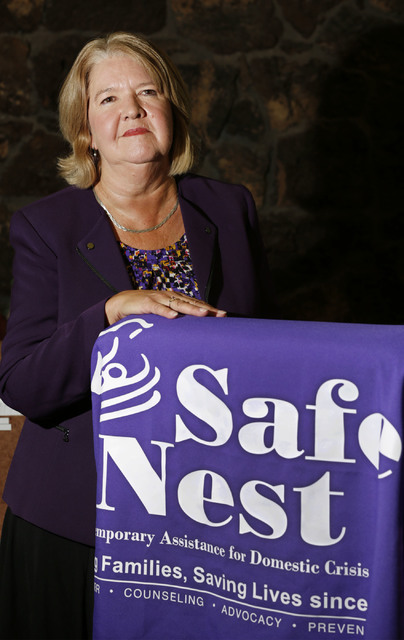
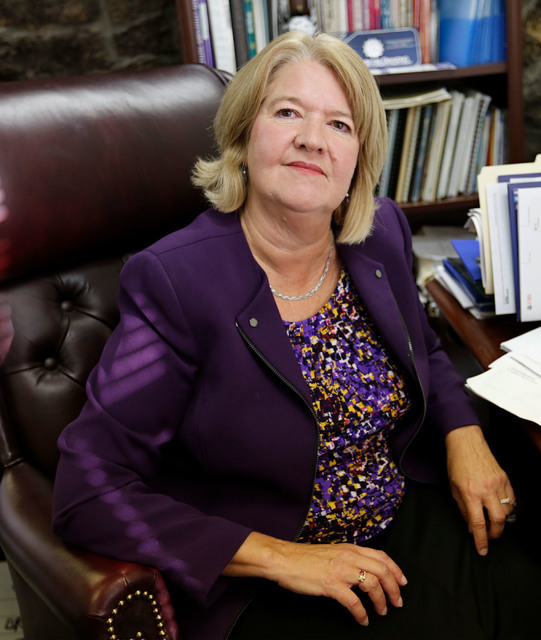
Vegas Voices is a weekly question-and-answer series featuring notable Las Vegans.
As a recent graduate with a master’s degree in social work in 1979, Estelle Murphy didn’t have a history with domestic violence, either personally or professionally. That didn’t stop her from moving across the country to take an executive director position with the fledgling nonprofit Safe Nest, a domestic violence shelter.
“You lose your heart to the cause,” Murphy says.
She steered the organization through 38 years of change, from nine beds to 71, from a hotline to the addition of counseling and other services.
On Wednesday, though, she turns that role over to Liz Ortenburger, former CEO of Girl Scouts of Southern Nevada, to spend more time with her young grandchildren in Las Vegas and Houston. Murphy will aid the transition, officially retiring in June.
“One of the big things that’s gotten me through is tremendous faith in a higher power,” Murphy says. “But for those who don’t have that, I think believing that there’s something beyond yourself, that there’s an ultimate reason … just a conviction that it’s important work.”
Review-Journal: What were the options for domestic violence victims before Safe Nest?
Estelle Murphy: That was a reason Safe Nest got going. … The people who founded it, a lot of them were people who were encountering victims. They were police officers, social workers, case workers, and people also who knew or had family members or co-workers or friends who were in that situation, who had nowhere, literally, to go. … Oftentimes, the only thing that we could tell a person that was calling was, “Look for a bus station where you could go, or look for a casino lobby that is crowded that people won’t notice you,” kind of to blend in somewhere and get past the night until we could get to them.
RJ: How has Safe Nest’s role changed?
Murphy: One of the things we’ve prided ourselves on is closing gaps in services. … When we first started, we were all about having a 24-hour hotline that people could call and being able to shelter so they could get away from their abusive partner. And then, we realized, gee, the children are really a mess, too, so we started children’s services. And then, the next thing was that we found out that a lot of the victims that were going to counseling, that they would try to get them into couples counseling. That was the rage then and, you know, you really can’t do couples counseling when you have an imbalance in a relationship and one party is afraid of the other person. The other thing is, is that counseling, at that time, would be centered on, ‘Well, what can you do to improve the relationship?’ And already, battered women are often feeling like, what are they doing wrong? And taking the guilt. …
By ’82 is when we opened the therapy office, and we also opened it for batterer’s treatment because we started to see very shortly that we could get a woman out of a situation, but sometimes that abusive party now got into another relationship and now that person became a client. … We ended up getting a lot of people referred by the court so that we could help retrain some of the men who really were motivated — and mostly it was men.
RJ: Are those programs effective?
Murphy: We look at it as, maybe a third of the people are really changed. There may be another third who go through the motions and do what’s expected of them and they look like they’re changing so it’s kind of hard to know without tracking them over time. And then I think probably there’s another third that just have a chip on their shoulders when they go in. But we have to do what we can do.
RJ: There have been stories published in the past few months about how women in Nevada are more likely to be killed in domestic violence-related shootings. Why is that?
Murphy: I don’t know if it’s that cowboy mentality that we have in Nevada or the fact that we have a lot of people who come here from other places and don’t have the support system. It’s really hard to say. That’s one thing we can look at … particularly in ’94 when a lot more resources were starting to be assigned to this, in that 20 years, 22 years since then, domestic violence has gone down over 60 percent nationally. And the thing is, it still accounts for 20 percent of all violent crimes. So it’s still a big number and it hasn’t come down as much as other violent crimes have come down over that 20 years. I think that we can be proud that we’ve made some headway.
RJ: You’ve been with Safe Nest for over 35 years now. Where do you hope to see the organization go in the next 35 years?
Murphy: We’d like to be out of business. I think when you do this kind of work, that’s what you hope for.
Read more from Sarah Corsa at reviewjournal.com. Contact her at scorsa@reviewjournal.com and follow @sarahcorsa on Twitter.












